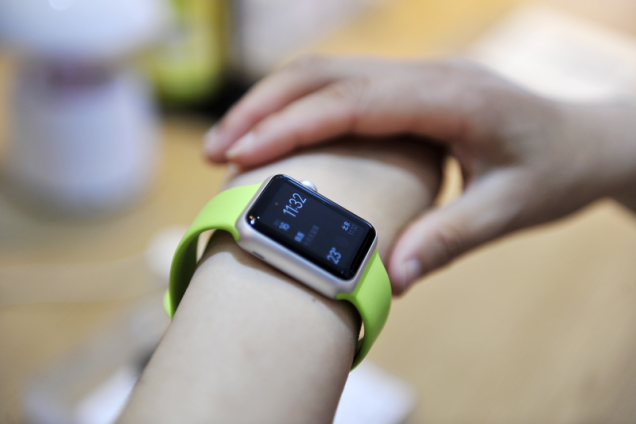My wife is an influencer. I’m a bit jealous, because about the only person I have any influence over is my son – and even that tenuous authority evaporates when I tell him it’s bedtime. Madame Tungate, however, has a popular fashion blog (Café Mode) and a host of social media followers.
This means that she is occasionally asked to test things for her community: cosmetics, skincare, that kind of thing. The other day she came home sporting an Apple Watch. This was a novelty for both of us, as I’ve never seen her wearing a watch, let alone a smart one.
We had great fun playing with it at dinner. First she wanted to find out if she could send me a text in voice mode. Speaking into her watch like a secret agent, she said: “Tell Mark dinner is ready.”
I checked my phone. I waited. Nothing. Then she realised that I’m not listed in her contacts as Mark. But plenty of other people are, which meant hundreds of Marks and Marcs all over the world simultaneously received a text telling them it was time to eat.
Next she tried Mark Tungate, which her watch translated as Marc Tonnes Kate. Finally she realised that I am listed as “Amour” (believe it or not). She tried again: “Tell Amour dinner is ready.” At last the text popped up on my screen: “Dinner is ready.”
It was a good laugh over a bottle of wine, but I wonder how my wife will get on with her watch in the long term. After all, wearable technology has not been universally embraced. Google stopped producing its Google Glass prototype a year ago, although it insists that the device has not been scrapped entirely.
The future of wearable devices will come into focus next month at the Wearable Technology Show in London (15-16 March). Among the products set to be unveiled are a GPS tracking device for pets, a gadget that monitors your child’s temperature and – in case you haven’t got around to that last part yet – boxer shorts that measure your fertility.
In the mood for phone
For the time being, it seems that activity trackers like Fitbit are the most popular form of wearable technology. The implications of such devices for the sporting community are obvious. For a while now, rugby fans have noticed little lumps between players’ shoulder blades: these are trackers providing information on average speed, heart rate and so on.
For those of us with more conventional jobs, there’s a market for smart watches that look like traditional timepieces: Motorola’s Moto 360 offers a heart rate sensor and wireless connectivity, but it is discreet and elegant. Tag Heuer has launched a smart watch that doesn’t feel the need to imitate a phone. Ironically, luxury watch makers like Rolex have faced a branding problem among smart watch users who download apps that turn their blank screens into ghostly electronic versions of expensive watches.
Non-geeks tend to prefer tech that wears its smartness lightly. The US accessories brand Kate Spade has scored a big hit with a bag that looks like…well, a bag. Except it has a pocket inside that keeps your mobile devices charged. Similarly, The Beacon is a silver bangle that glows when you receive a call or text. It can be colour-coded for each of your contacts, and switched off with a subtle flick of your wrist.
The question for you, dear reader, is whether these devices have any advertising potential? Particularly if they have don’t have a screen. I’m not sure many of us would want an ad popping up on our wrists, anyway. But a gentle vibration as we pass a store that stocks the latest book by our favourite author? Maybe.
Obviously, the most valuable asset wearable technology can offer is data. Not just about how people exercise and where they go, but also about how they feel. Could we reach a stage where our emotional state is automatically passed to our phones via a wearable device? In return we might receive suggestions of movies, exhibitions or products that are in tune with our mood.
This raises inevitable concerns about privacy. How much would you like your Uber driver to know about you before he or she shows up? “Hi Mark, I understand you’ve had a shitty day at work. You’ll find a dry martini mixed and ready in the fridge beside your seat. You like a slice of lemon rather than an olive, right?”
Personally I’d settle for an app that sends my wife flowers when it detects that I’m running late for date night. Just in case she downgrades me from “Amour” to “Marc Tonnes Kate.”




